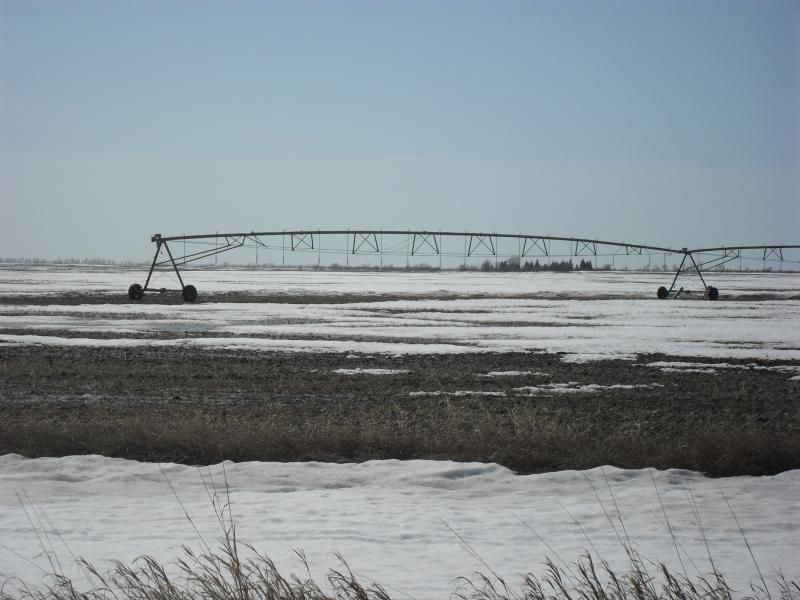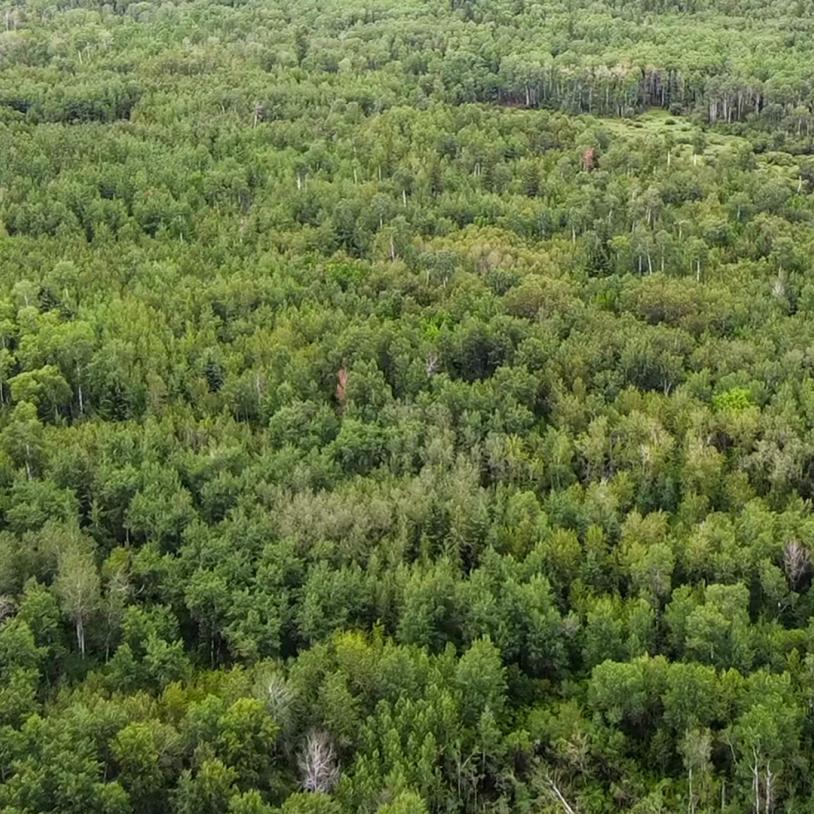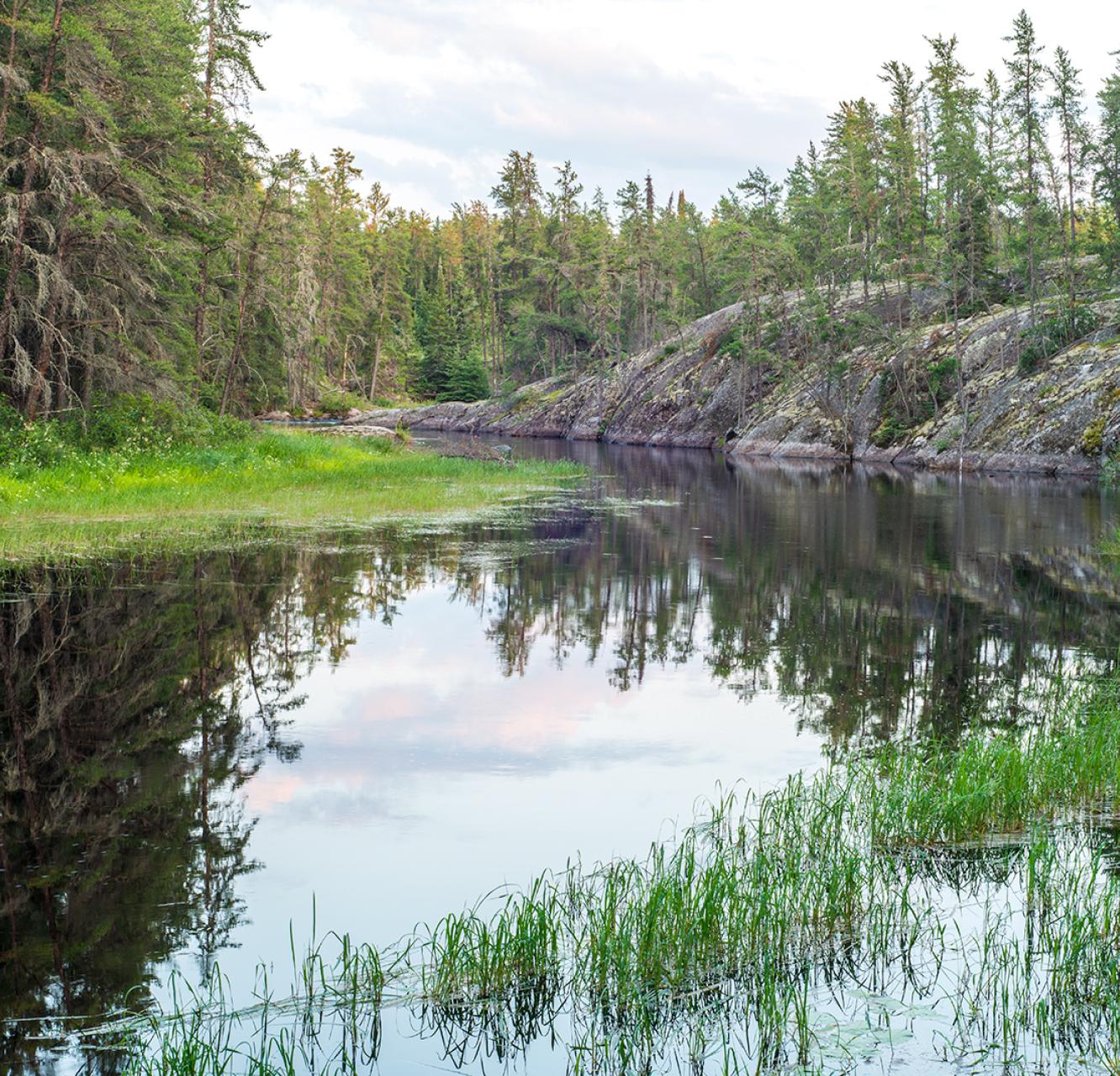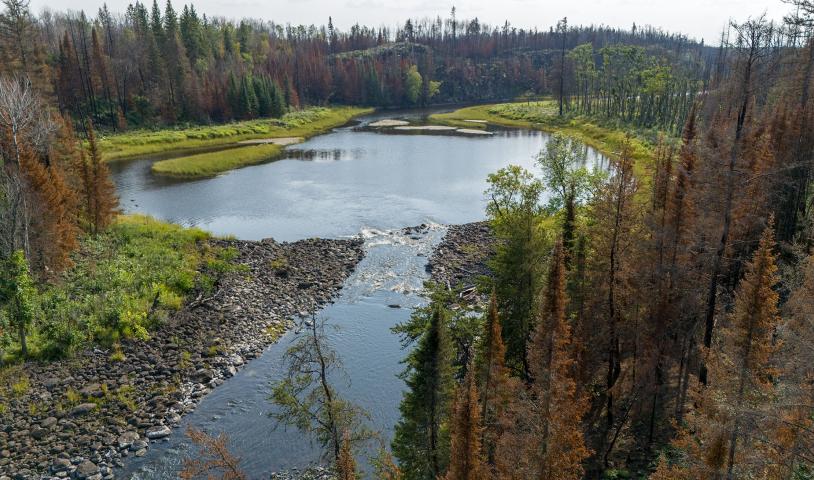Protecting the Little Saskatchewan River: Licences, Appeals, and a Broken System
Friday, May 17, 2013This is a guest blog post written by Ruth Pryzner, a farmer in western Manitoba who has been dealing with regulatory hurdles and the Environmental Licensing process in relation to a proposal for an irrigation project on the Little Saskatchewan River. Ruth's story exemplifies many of the same problems that the Wilderness Committee has faced over the past few years in appealing decisions on projects that impact Manitoba's wild places and endangered species. These ongoing issues are a clear indication that things need to change within Manitoba's Environmental Licensing system.
---
Manitoba Conservation and Water Stewardship is not living up to its name. The ongoing effort to protect the Little Saskatchewan River is illuminating problems with the licensing process. Problems with the Environment Act, environmental assessment, licensing and appeal process, and Crown-Indigenous nation relations become obvious when you look at the case of the Daly Irrigation Development Group (DIDG) Environment Act Licence 3010, issued on July 5, 2012.
The very next day, Water Licensing gave DIDG the go ahead to install irrigation equipment and to withdraw water from the Little Saskatchewan River to irrigate potatoes and other crops near Rivers, Manitoba.
Irrigation equipment at the site near Rivers, MB. Photo: Ruth Pryzner.
Nine appeals of the licensing decision were submitted to Conservation Minister Mackintosh last August. Eight months later, the department has just started its appeal review. The irrigation season will begin soon. In a functioning, democratic environmental protection system, work should not be allowed to start until an appeal process is completed.
While the appeals are under review the irrigators can continue acting on licences and permits. DIDG has installed irrigation equipment to take water from the river this spring. Appellants are worried that DIDG’s monetary investment and the delay in the appeal process places significant political pressure on government to dismiss the appeals. What good is an appeal if it can’t halt development until an appropriate decision is reached?
The province claims there is no need to consult First Nations, because no adverse effects on surface water, habitat for wildlife, or fisheries are anticipated. Although they’re inadequate, Licence 3010 does contain provisions to mitigate harm to fish, wildlife, endangered species, and their habitat. These very conditions are evidence that adverse effects are anticipated on the life in and around the river, which are Treaty 2 traditional lands. However, the licence puts DIDG’s desire for profit ahead of everything else.
The Little Saskatchewan River Conservation District appealed the licence. Their own government-approved Integrated Watershed Management Plan made the completion of an in-stream flow study of the river a priority before any development. That study hasn’t been finished. Similarly, Manitoba Fisheries also recommended that an in-stream flow study be done before any licences were issued.
Further, the Water Rights Act guarantees any person who is affected by an order or decision the right to appeal to the Municipal Board regarding departmental decisions made on behalf of the Minister.
Yet, an appeal of the DIDG development permits by a member of the public was rejected by the Board, who claim that their policy confers this right exclusively to developers. Only DIDG could appeal, if they thought the department’s decision interfered with their economic interests. If the public, residents, or First Nations anticipate injury, appeals to the Municipal Board are eliminated by the Board’s unilateral interpretation of the Act. Their focus is now only on a company's perception of how licence and regulatory conditions impede their ability to make money, not on how licences may fail to protect the environment or allow harm to people and communities.
Assistant Deputy Minister of Environmental Protection Dan McInnis, during a December meeting with an appellant, advised that even if serious omissions in the licence conditions were exposed the only outcome expected could be amendments to the licence. He made it clear that the licence would not be pulled. He admitted he was unfamiliar with the content of the appeals.
McInnis also confirmed that the same staff who conducted the project’s environmental assessment and issued the licence, and those who granted permits under the Water Rights Act, would be reviewing the appeals and submitting a report to him. He would meet with them and report to the Minister, who would then make a decision. A fair appeal process requires a new and independent party to review cases, not the same body whose decisions are being appealed.
Quashing this licence is a legal option for the Minister in the Environment Act. But will this be recommended when his main advisor has prejudged the outcome of the appeals without knowing their content, and when he’s relying on staff who are assessing their own decisions? This appeal process is fatally compromised. An objective assessment of the propriety of issuing the licence is not possible. This is as if a judge were hearing an appeal on his own previous ruling.
After the December meeting, it was discovered that at least one appeal had disappeared. While it was re-submitted directly to McInnis, the substantive issues and evidence provided in that appeal would not have been known had the appellant not been persistent in finding out who was responsible for receiving appeals before a decision had been made. It was only then that McInnis committed to personally reviewing the content of all the appeals.
Clearly, the legal right to appeal under the Environment Act has been administratively thwarted in order to prevent independent scrutiny and review of bureaucratic decisions.
After having been alerted to the same problems – including the pre-judged appeal outcome – and having been urged to fulfill his duty to Treaty 2 First Nations, Premier Selinger referred all matters to the Minister. This, despite having been reminded that he and cabinet had an equally important role to play in the appeal process. Cabinet is legally required to review the Minister’s proposed decision on an appeal, and can either support, modify or overrule that decision.
Will Mackintosh, Selinger and cabinet fix the fatally flawed system, consult with Treaty 2 First Nations, and make the right decision based on an independent assessment of the project, licence and appeals? Will they put environmental protection ahead of corporate profits?
When the Environment Act comes up for review under Manitoba’s green plan, "Tomorrow Now," will they actually create a system that requires proper due process, ensures the environment is protected, and allows for harmful developments to be denied approval? Or will they continue to support and protect the interests of business ahead of all others?
- Ruth Pryzner
Ruth is an environmental and farm activist who operates an ecological and humane farm near Alexander, Manitoba.






